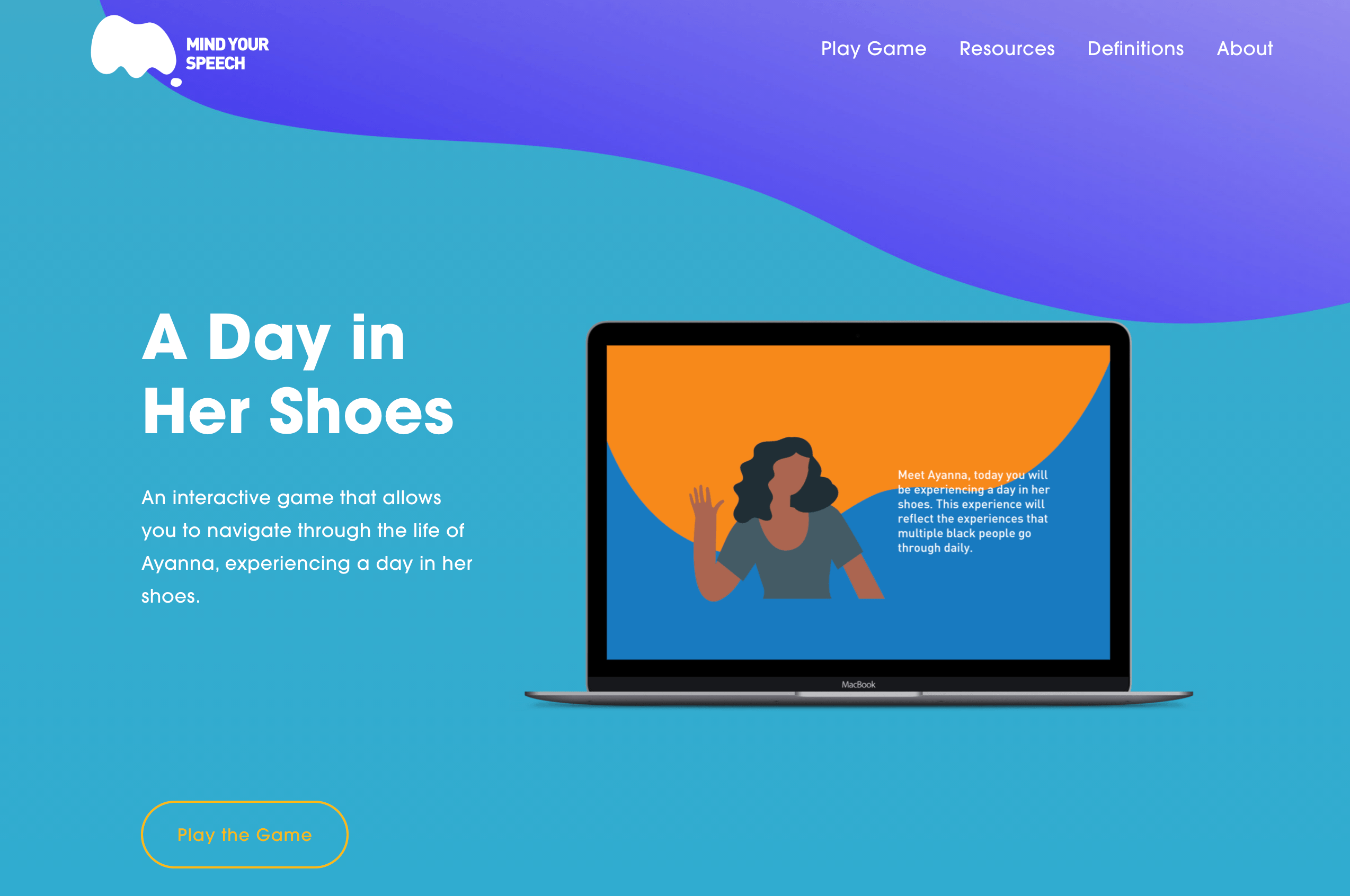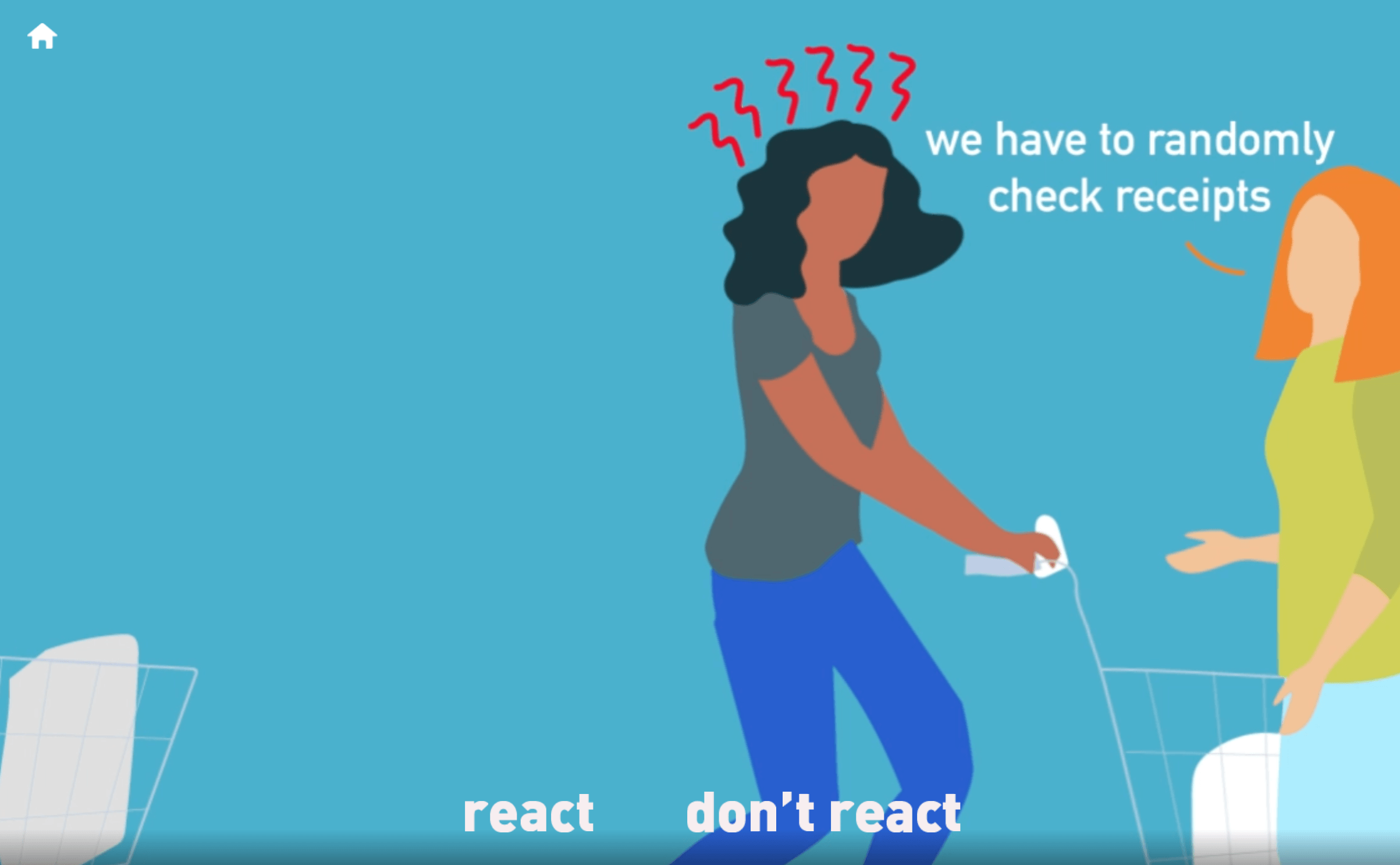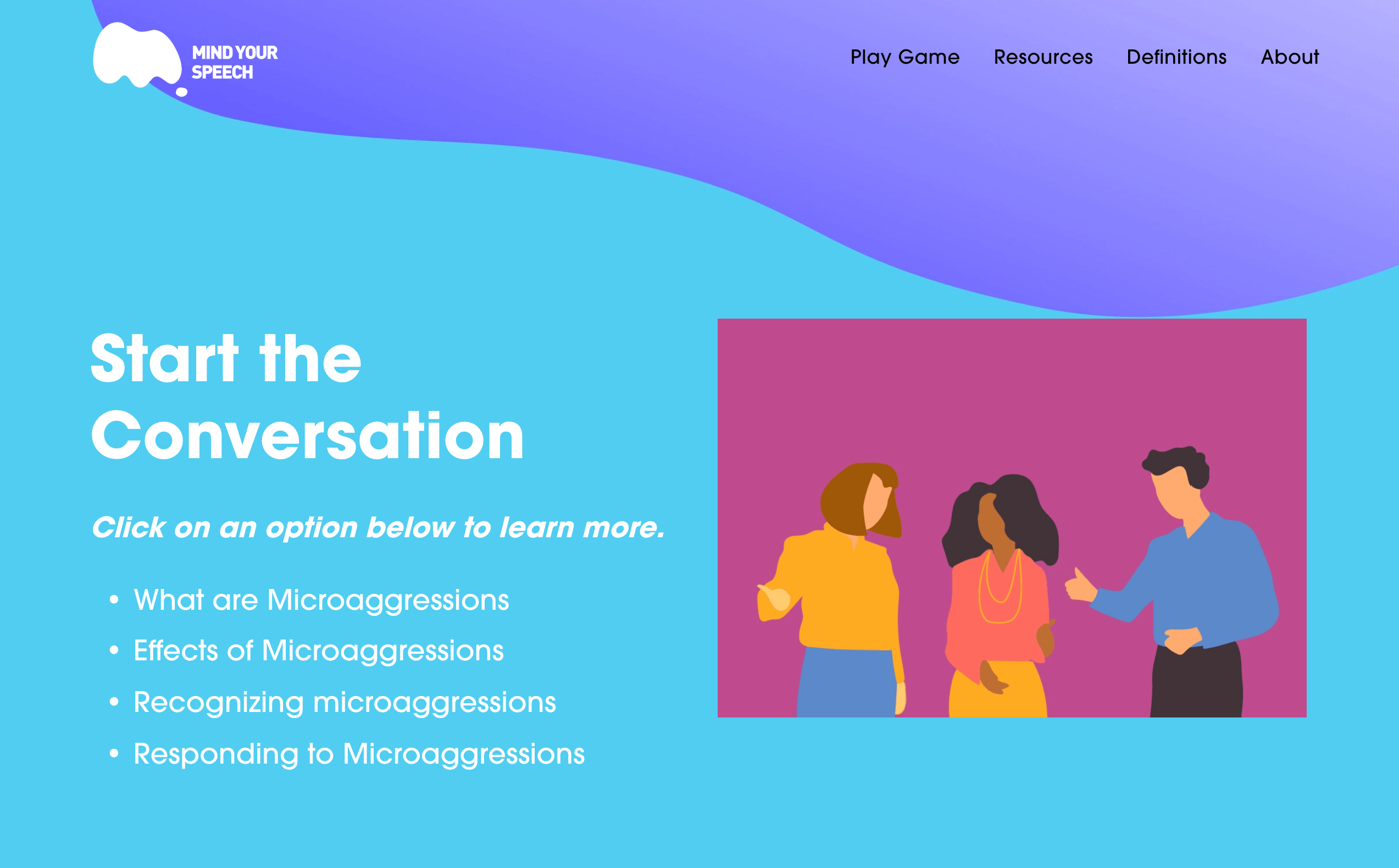
Graphic design senior thesis project teaches about microaggressions
Gyona Rice '20 creates Mind Your Speech Campaign






By Julie Carle
Gyona Rice, a 2020 Bowling Green State University graphic design graduate, used her senior thesis project to address an issue that she learned more about during her time at BGSU.
She created the Mind Your Speech Campaign, which was selected as the best Graphic Design thesis for the 2019-2020 academic year - to address “microaggressions.” Initially, Rice was unfamiliar with the term; however, when she learned the meaning - an indirect or subtle discrimination against a marginalized group or person - she recognized it from her own life experiences as a Black person.
She admits she had probably experienced microaggressions many times throughout her life, but it was during a critique of her work that it struck a chord for her.
“I was told that there was ‘too much Black work in it,’” Rice said.
She was immediately annoyed and later angered by the comment. “I don’t think they really thought about what was said. In the program, we are taught to think about what influences us. They ask, ‘Who influences you, who do you listen to, what music do you like?’” she said. “I’m Black. My influences and my outlook come from my lived experiences.
“For whatever reason, because the comment rubbed me the wrong way, I went on a path of finding out why I was feeling that way,” Rice said. “During a SMART training with Ana Brown (director of the Office of Multicultural Affairs), she talked about microaggressions and instantly, it was like, ‘Oh! That’s what it was.’”
Rice decided to explore the topic more and to find out why that behavior was normalized by others when they justified it by saying, “They didn’t mean it that way; there’s no harm done.”
“As I thought about it more, the idea that as a Black person that’s what you have to go through just felt completely wrong,” Rice said.
The topic became the focus of, not only her graphic design thesis project, but also her McNair Scholars Program project and a Center for Undergraduate Research and Scholarship (CURS) grant project.
The project became “my baby,” she said. “All my energy, love and thoughts went into that project.”
Throughout her senior year, she researched, wrote and designed almost exclusively about microaggressions. The McNair/CURS project was presented as a written/oral project. For the graphic design project, she needed to think about representing the topic visually.
The last three months of her senior year became even more intense, not only because the projects were due, but also because COVID-19 shut down in-person classes and everything moved to 100% online.
“So, it was nonstop,” Rice said. “I was a researching, studying, putting it on the website, which meant I also had to teach myself to code, so now I know how to do coding for a website.”
The collateral for the project included posters, video scenarios and a game to help people learn about microaggressions and related definitions, a test for implicit bias, and a variety of resources to discover and reflect on the topic. (See associated images on this page)
“The power of microaggressions lies in their invisibility to the perpetrator,” Rice said.
Among the goals of her senior projects was to help educate others, including faculty and staff “because sometimes in the classrooms, students of color do not feel welcomed and included, or they are expected to represent their race.
“I know you can’t change everybody, but I hope maybe this helps somebody to speak up or put a bug in someone’s ear about what they are saying, how that sounds and what that actually makes it look like,” she said.
Rice is currently working as a freelance graphic designer. After graduating in May, she returned to her native Michigan where she could be closer to her family, including her older sister Dajaniere Rice, also a BGSU graphic design alumna.
“It’s not often that we have two siblings in a program,” said Jenn Stucker, chair and associate professor of graphic design at BGSU. “They’re both incredibly talented and I learned a lot from them, personally.”
Gyona’s project earned the top honor for senior graphic design thesis projects in 2020. Dajaniere, whose senior project was the use of art to fight depression, received the Medici Circle Cup Best of Show Award for the 2017 BFA thesis show.
“They’re both artistically talented. They see design as an opportunity to utilize their artistic talent because graphic design is communication for the masses. They recognize the opportunity and the platform that design gives them, using their skill set as artists and designers,” Stucker said.
Regarding Gyona’s senior thesis, Stucker said, “She was mindful of the work she was creating. She often selected work that focused on Black-based businesses or topics. I’m sure that was a heavy burden on her to bring that content forward, but she never complained and handled everything with grace. She brought that content to us, and it was amazing.”
Media Contact | Michael Bratton | mbratto@bgsu.edu | 419-372-6349
Updated: 02/06/2026 02:54PM
